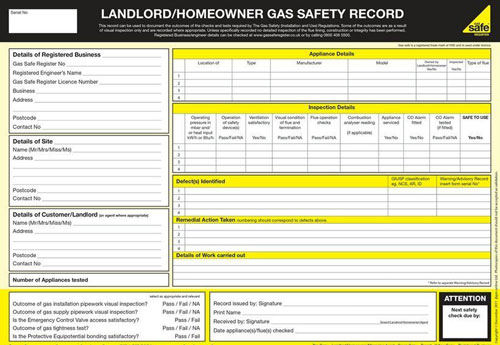Fast & Affordable Gas Safety Certificate London

Introducing our new website, your ultimate resource for understanding the significance of Gas Certificates. In this comprehensive guide, we delve into the world of gas safety, explaining what Gas Certificates are, why they matter, and how they play a pivotal role in ensuring the safety, compliance, and peace of mind for homeowners, landlords, and tenants alike.
Defining Gas Certificates: A Clear Overview
Gas Certificates, also known as Gas Safety Certificates or CP12 certificates, are official documents issued by qualified Gas Safe registered engineers after conducting thorough assessments of gas appliances and installations. These certificates affirm that gas equipment and systems in a property are safe, in proper working condition, and compliant with regulations.
Prioritizing Gas Safety: The Imperative
Safety is paramount when dealing with gas appliances, given the potential risks associated with gas leaks, fires, and carbon monoxide poisoning. Gas Certificates are not just pieces of paper; they are tangible proof that your property’s gas systems have been meticulously inspected, ensuring the safety of occupants and property.
Gas Certificates and Legal Obligations
For landlords and property owners, Gas Certificates are not just recommended; they are often legally required. In many jurisdictions, properties with gas appliances or installations must undergo annual gas safety checks conducted by Gas Safe registered engineers. These checks result in Gas Certificates, demonstrating compliance with regulations and duty of care towards tenants’ safety.
The Gas Certificate Process: From Inspection to Certification
Gas Certificates involve a systematic process to guarantee gas safety:
- Visual Inspection: Certified engineers conduct a visual assessment of gas appliances, checking for any visible defects or issues.
- Gas Appliance Testing: Each gas appliance is thoroughly tested to ensure it operates correctly, safely, and efficiently.
- Flue Inspection: If relevant, flues and ventilation systems are examined to ensure proper air circulation and safe gas exhaust.
- Gas Tightness Test: This test identifies any gas leaks within the system, ensuring that gas supply is secure.
- Combustion Efficiency Test: For boilers, an efficiency test is performed to ensure optimal combustion, minimizing waste and hazards.
Understanding the Gas Certificate Report: Peace of Mind
Upon completion of the assessment, a Gas Certificate report is generated. This report provides an in-depth overview of the inspection findings, test results, and any recommendations or actions taken. It’s a tangible assurance of your gas systems’ safety and compliance.
Beyond Compliance: The Added Benefits
While compliance with regulations is paramount, Gas Certificates offer additional advantages:
- Tenant Trust: Furnishing tenants with Gas Certificates demonstrates your commitment to their safety and well-being.
- Appliance Longevity: Regular checks and maintenance highlighted in Gas Certificates prolong the lifespan of gas appliances.
- Reduced Energy Bills: Efficient gas appliances save energy and money, as noted in Gas Certificate recommendations.
Conclusion: Prioritizing Gas Safety with Certainty
Gas Certificates are not just a legal obligation; they are a symbol of responsible gas management. Our new website is your go-to resource for understanding the importance of Gas Certificates. From ensuring safety to complying with regulations and reaping the benefits of efficient gas systems, Gas Certificates play a crucial role in maintaining a secure and comfortable living environment. Explore our site to gain insights, schedule assessments, and empower yourself with the knowledge you need to prioritize gas safety.
